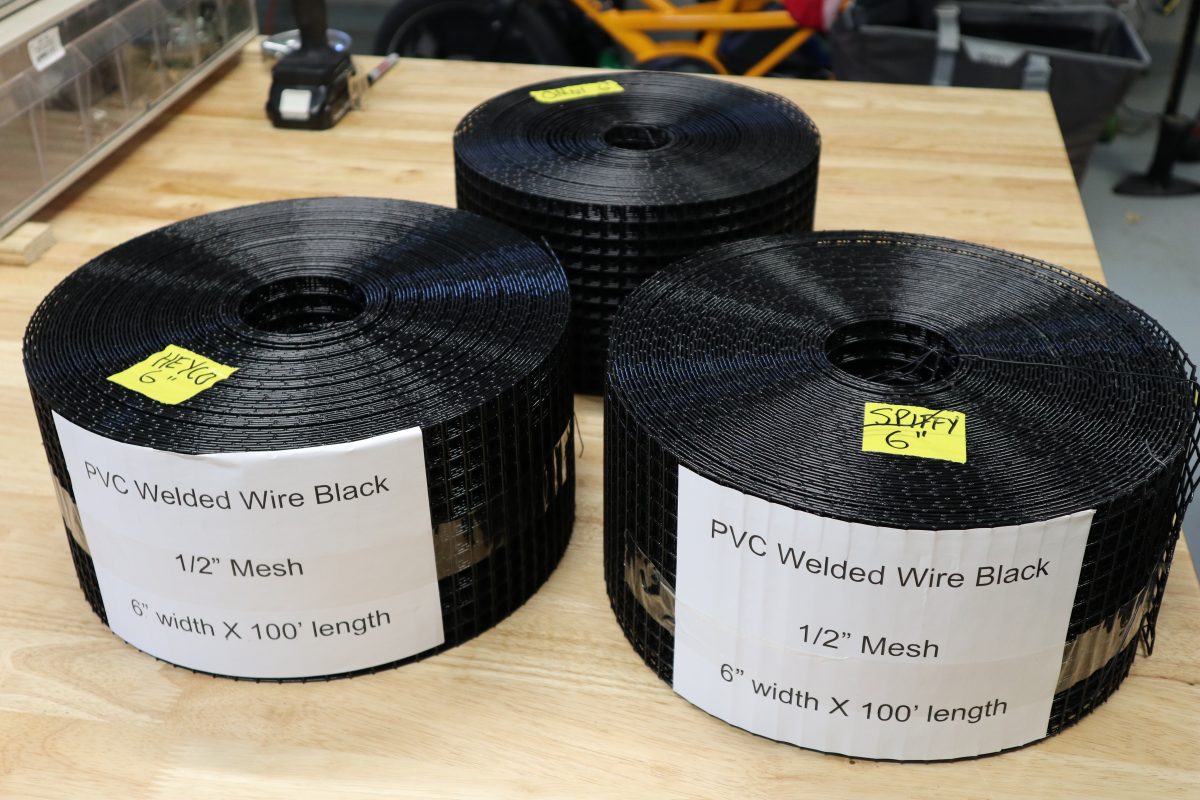Wire mesh used for solar animal/critter guard is coated with plastic to make it more corrosion-resistant. The coating is usually a dark color for a discreet look. There are two types of plastic coating on the market: PVC and polyester.
PVC Dipped Wire Mesh
90% of mesh sold for solar animal guard is PVC-coated. Some manufacturers of PVC coated mesh include Heyco, Omni, Spiffy Solar, mysquirrelguard.com and various Chinese brands sold on Amazon. Slick Tools also sells a high-quality PVC coated mesh. PVC is a soft and elastic material. Think of the rubbery coating on the handle of a tool. It can be dented easily with your fingernail.
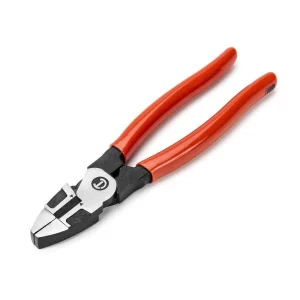
An individual PVC-coated wire is typically .065″ in diameter. That’s for a 19-gauge galvanized wire, which we recommend for its balance of stiffness and formability.
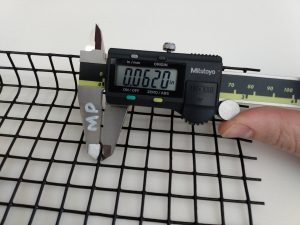
Mesh coated with PVC tends to feel soft and malleable. That makes it easy to form into a desired shape, but it can also be deformed unintentionally, yielding a slightly messier and less stable finished product. The PVC coating stretches more easily than polyester, and is less likely to crack when you bend it.
Polyester Powder Coated Wire Mesh
One manufacturer that we know of – TWP Inc. – uses an entirely different process to coat their wire mesh. The process is powder-coating, and the material used is polyester instead of PVC. The end result is a thinner coating, but one which is very durable and has excellent adhesion to the underlying wires. Think of the coating on a metal car rim or bicycle frame. It is too hard to scratch or dent with your fingernail.
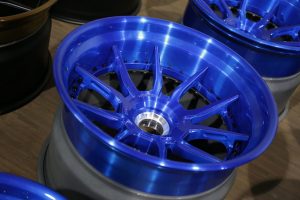
An individual powder-coated 19-gauge wire is typically .045″ in diameter.

Powder-coated mesh tends to be quite rigid and springy. It takes more effort to form it into a shape than PVC-coated mesh, but it is strong and rigid once bent. Unfortunately, if the powdercoating process is not performed perfectly, the coating may chip and crack when the mesh is bent, creating the possibility of corrosion.
So which mesh should I use?
Both PVC- and powder-coated mesh can lead to good quality animal guard. As long as your mesh is:
- the correct thickness (19 gauge steel wire),
- galvanized and plastic coated, and
- produced and sold by a reliable brand (hint: avoid Amazon!),
your installers and customers will be happy with the product.
Pssst… We hate to toot our own horn, but Slick Tools sells a high-quality PVC coated mesh right in our online shop! Get $25 off your mesh when you buy or rent an AG Bender™.
Why coating type matters for the Slick Tools AG Bender™
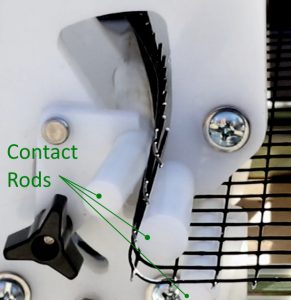
Our AG Bender uses a continuous forming process to shape wire mesh into rigid, durable channels. During the process, wire mesh must slide along low-friction plastic rods called Contact Rods.
Because PVC and polyester have very different mechanical and chemical properties, we supply two different types of Contact Rods; each optimized to reduce friction with one type of coating.
To bend PVC-coated wire mesh, use Teflon™ rods.
To process powder-coated mesh, use Delrin™ rods.
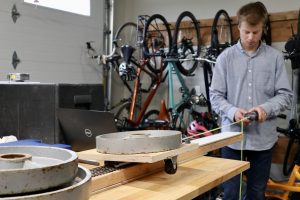
We arrived at those two materials after extensive testing. The difference is quite large – if you use the wrong combination of wire mesh and contact rods, you may have to pull twice as hard to get material through the machine! This could damage the wire mesh, the Bender or the operator if the mesh were to come loose unexpectedly. We supply Teflon rods with every new Bender since most installers use PVC coated mesh. Delrin rods can be purchased separately and retrofitted into any AG Bender (see instructions in the User Guide). Rental customers can choose Teflon or Delrin at checkout.
If you have any questions about this, our team is happy to help! Contact us.

